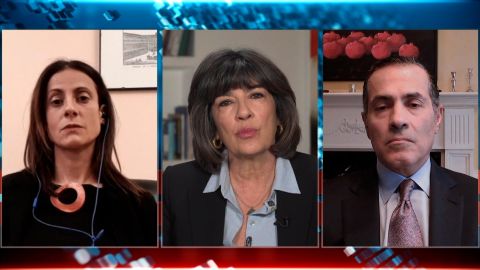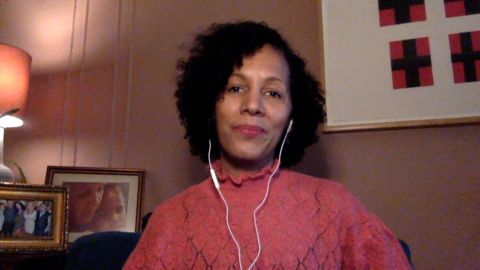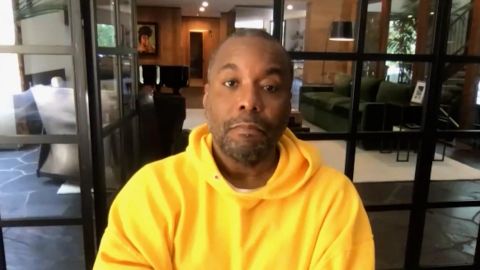Read Transcript EXPAND
CHRISTIANE AMANPOUR: Before I go into the music, because, obviously, this is our lives, our song, how much real help, protection did the slaves, did black Africans, black Americans get from going into their churches? How much of a welcoming place was it? How easy was it for them in the very beginning to create these churches and churches that were separate from the white churches? I mean, weren’t the slave owners kind of suspicious? Did they think they may be plotting how to escape and free themselves? Tell me about that.
STACEY HOLMAN, PRODUCER/DIRECTOR, “THE BLACK CHURCH”: Well, they were suspicious. We talk about invisible institutions. And what that exactly is how it sounds. They would go into hush harbors, which were in the woods, in forests and trees, and praise and worship, because, as enslaved Africans learn how to read, they begin to understand and interpret the Bible for themselves. They understood about Moses, and they understood that God liberated the Israelites. They understood that Jesus was a servant like them, was abused like them. So they found that what they were being denied in the word, as they began to read, they were teaching each other. And a lot of planters did not want that to be spread. So, in terms of even Savannah church, and First African Baptist, there was like, some, watchful white eyes that were sitting in the pews as people were preaching, as men, I should specify, were preaching. And that was a big deal, until we get to Richard Allen, where they’re like, you know what — which is the African Methodist Episcopal, and they completely separate themselves from the Methodists. And that’s strictly because they’re denied of sitting in the pews next to other white congregants But it was very — it was a very fine line. And they had to be very careful on all fronts.
AMANPOUR: So, obviously, music is a huge, huge, huge part of the black church. And, I mean, there’s a quote. During the Civil War, one of the soldiers said that: “Spirituals did more to free my people than all of the guns of the Army.” And we’re going to play a clip of Rutha Mae Harris. She was one of the Freedom Singers in the 1960s. And here she’s just talking about the importance of music during the civil rights struggle.
(BEGIN VIDEO CLIP)
RUTHA MAE HARRIS, FREEDOM SINGER: Say you’re walking down the street doing a march, and this policeman tell you you’re going to be hit or whatever. You start singing. I ain’t going to let nobody turn me around, not even a chief of police.
(LAUGHTER)
HENRY LOUIS GATES JR., PROFESSOR, HARVARD UNIVERSITY: Right. Not even a billy club.
HARRIS: Not even a billy club.
(SINGING)
(END VIDEO CLIP)
About This Episode EXPAND
Should President Biden reverse the Trump administration’s withdrawal from the Iran Nuclear Deal? Experts Nathalie Tocci and Vali Nasr weigh in. Director Stacey Holman discusses her new PBS series “The Black Church.” Director Lee Daniels joins Michel Martin to discuss his new film “The United States vs. Billie Holiday.”
LEARN MORE


